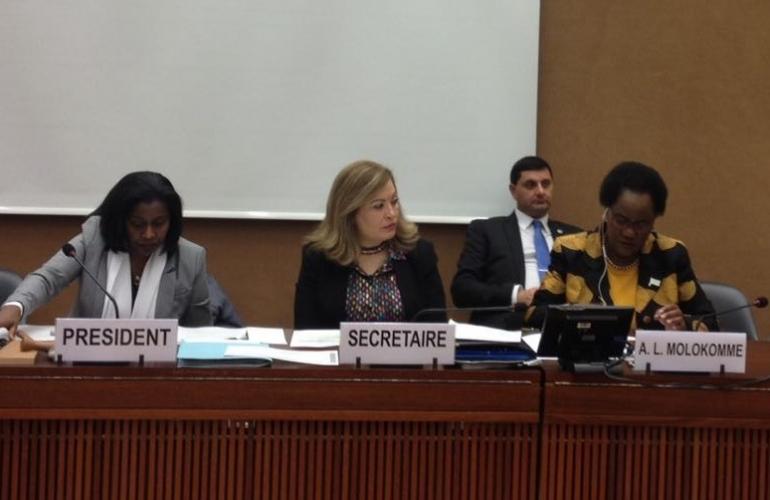
Competition Policy Helps Botswana Achieve the Sustainable Development Goals
The Ambassador and Permanent Representative, Botswana Mission to the United Nations Office in Geneva, Dr. Athaliah Molokomme, says experience by most countries including in Africa, has shown that Competition Policy and Law have numerous economic benefits which are essential for driving socio-economic development goals.
She says this is because opening markets to competition in various sectors of the economy can lead to productivity, efficiency, innovation, employment, lower prices and a greater variety of quality goods and services.
Dr. Molokomme was speaking at a panel discussion on the Role of Trade as a Catalyst for Accomplishing the 2030 Agenda for Sustainable Development at the 9th Session of the UNCTAD Trade and Development Commission in Geneva, Switzerland on 28th November 2017.
Further, she said experience has shown that anti-competitive practices have the potential to erode the economic benefits generated by such policies if competition is left in the hands of the market. Therefore, adoption of the Competition Policy and Law is an indispensable economic reform for any country that wishes to attain sustainable developmental goals and ensure that the benefits to be derived from other policies are supported.
“It is for this reason that the Government of Botswana joined the world in establishing a competition regime for the regulation of competition in the market. Botswana adopted the National Competition Policy in 2005, enacted the Competition Act in 2009, and subsequently established the Competition Authority in 2011,” Dr. Molokomme said.
Botswana, like other developing countries, is faced with developmental challenges such as poverty, unemployment, and income inequality. In order to address such ills, there is a need to induce pro-competition measures in sectors which have a high potential of providing solutions, and the Competition Policy and Law is expected to play a major role in enabling the Government to address such challenges, the Ambassador observed.
“Competition Policy could be most effective in reducing poverty and increasing shared prosperity by boosting competition in sectors which are most relevant in enhancing the welfare of vulnerable groups, in particular the poor. Competition helps to empower the poorer segments of society by increasing their buying power and giving them greater economic opportunities” she said.
Empirical literature shows that consumers pay artificial high prices for goods and services due to the existence of cartels and restrictive business practices. Removing barriers to competition in consumer markets will attract more players to the market and rivalry between these players will result in quality goods and services at lower prices, culminating in enhanced consumer welfare and poverty reduction, Ambassador Molokomme said.
The Panel was informed that the Competition Authority has for the past two years prioritised its resources to train public officers and parastatals involved in public procurement on how to detect and prevent bid- rigging.
The exercise was done with the aim to empower procurement officials to fight cartel arrangements looking at their harmful effect on Government spending. The initiative has resulted in two cases of bid-rigging being prosecuted in the Courts of Botswana. In addition, the Authority has entered into cooperation arrangements with local authorities to assist it in detecting collusive and bid-rigging arrangements.
In this way, enforcement of competition law has enhanced transparency and complemented the anti -corruption efforts by government which have placed Botswana high on the list of least corrupt countries, Dr. Molokome said.
(Access the full speech on: http://www.competitionauthority.co.bw/competition-policy-and-sustainable-development-goals-unctad-session-2017-dr-athalia-molokomme)







